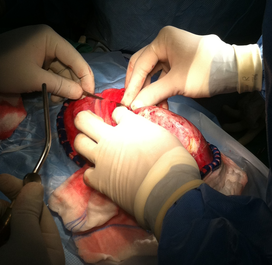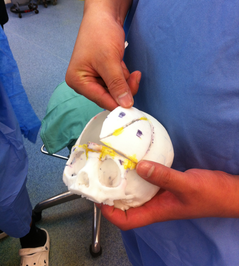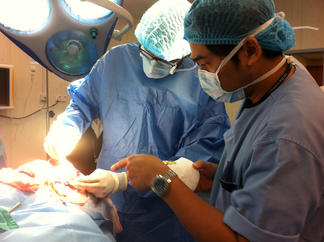Paediatrics Neurosurgery
There are host of paediatric neurosurgical problems that can affect a newborn, infant, toddler, teenager and adolescence. When the baby is born with a particular condition is known as a congenital condition. However, if the baby is born normal but over the years develop a condition it is an acquired or developmental condition.
Paediatric neurosurgical services would admit children between the ages of a newborn up to the age of 18 years old. The conditions that affect children vary with the age group which may involve the brain or the spinal cord.
The newborn may have congenital conditions example protrusion of a sac or brain from the defected skull or spine, abnormal lumps, dimples or hairy patches at the lower back, enlarging head circumference, abnormal skull shape etc. These various conditions of meningoencephalocele, spinal lipoma, hydrocephalus, tumours and craniofacial syndromes need urgent neurosurgical attention.
The older child may develop progressive unsteadiness on the feet, seizure, weakness, blurring of vision, persistent vomiting etc. These are symptoms of a possible brain or spinal cord problem eg. brain tumours, spine tumours, abnormalities in the spine formation etc. These problems need to be evaluated clinically by taking a good history and complete physical examination. Then the relevant investigations need to be conducted eg. X-rays, Ultrasound scans, MRI scans, nerve conduction studies etc. The MRI images are of high resolution (1.5 to 3.0 Tesla). Once the exact problem has been identified, the management strategy is formulated that is suitable to that particular patient considering all factors eg. age, bone maturity, and weight of the child etc.
The common conditions treated in the unit range from congenital problems of brain and spine eg. meningoencephalocele, spinal lipoma etc; developmental problems etc. craniocervical problems; brain tumours; spinal tumours; hydrocephalus; craniosynostosis (non-syndromic and syndromic) and traumatic brain and spinal injury.
There is a multidisciplinary team to deal with craniofacial cases which compose of neurosurgeons, maxillofacial surgeons, ENT surgeons, eye surgeons, geneticist, paediatric intensivist, paediatric anaesthetist, physiotherapist, social worker etc.
The surgical treatment is varied depending on the condition. It is carried out in operation theatre mostly under general anaesthesia. The “state of the art” equipments are available at our disposal and are used for the cases in order to obtain the best possible outcome. The equipment available to be used includes high-end ZEISS microscope, electromagnetic MEDTRONIC AXIEM S7 image guidance system, neurophysiological intraoperative nerve monitoring, endoscopes, ultrasonic aspirators etc.
The post-operative care is carried out in the intensive care unit or high dependency unit depending on the condition. The brain and spinal tumour cases are jointly managed with the paediatric oncologist.
The patients are followed up in the clinic periodically to assess their clinical condition and well being. Some patients would also require serial imaging eg MRI scans.


